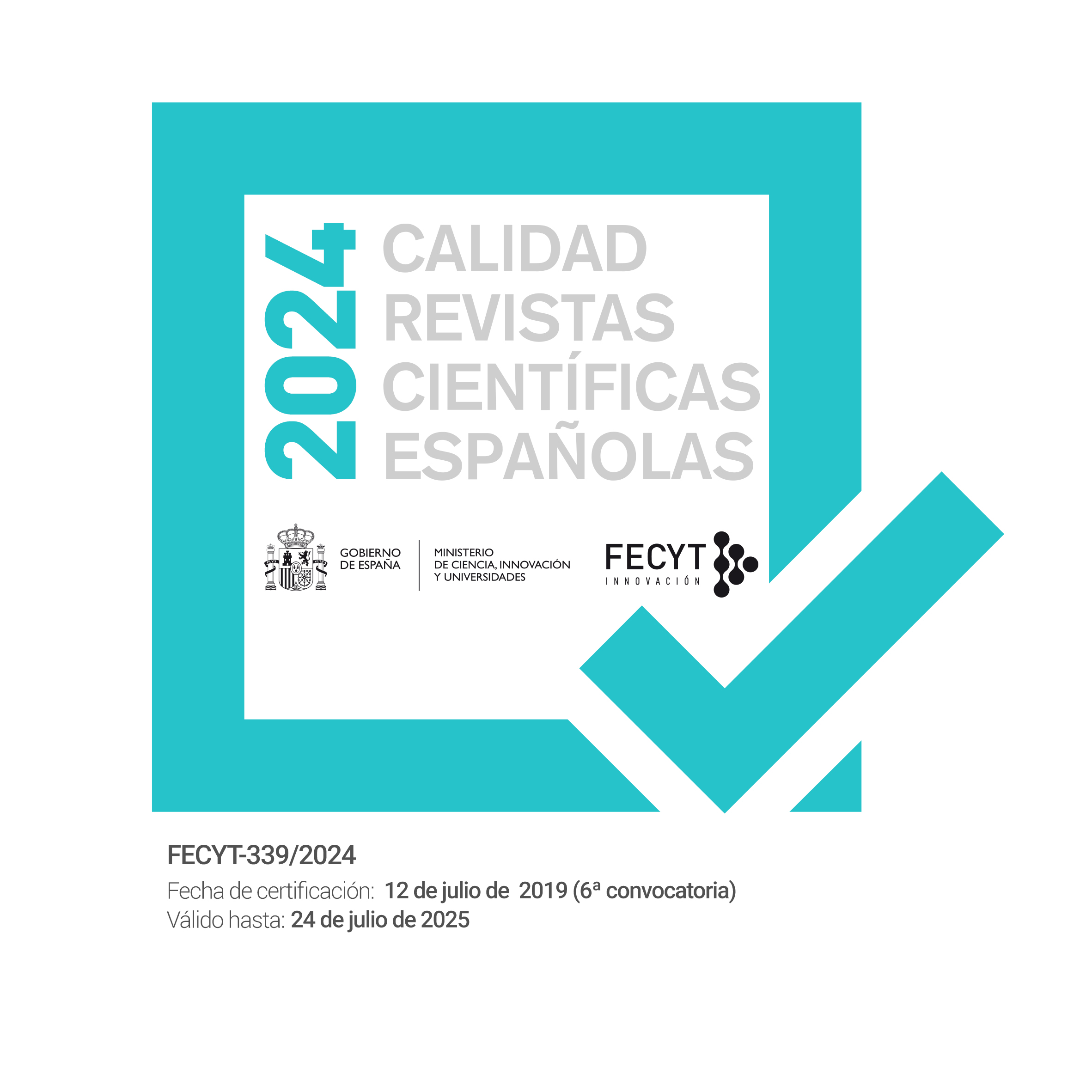“The table penholders the book” Nonsense?
The traditional reading and the austere reading of nonsense in Wittgenstein.
DOI:
https://doi.org/10.24310/crf.17.1.2025.17918Keywords:
multiple relation theory of judgment, wide problem, propositions, nonsense, Rusell, WittgensteinAbstract
The aim of this paper is to examine the wide problem of Bertrand Russell's multiple relation theory of judgment. Firstly, we will explain the fundamental ideas of that theory, which postulates that judgment is a relationship between the subject and a multiplicity of entities, and these appear in the judgment as mere objects. Then, we will analyze the traditional reading of the wide problem or the criticism of nonsense that Wittgenstein makes of said theory, whose core is synthesized in the idea that under the theory of judgment as a multiple relationship it is possible to judge nonsense, because nothing regulates that entities can be replaced by other entities of the incorrect logical genus. Finally, we will analyze what Wittgenstein raises about nonsense in the Tractatus. Based on this, we will conclude that there are two interpretations of the criticism of nonsense: the traditional reading, and the austere reading of nonsense.
Downloads
Metrics
Publication Facts
Reviewer profiles N/A
Author statements
Indexed in
-
—
- Academic society
- N/A
- Publisher
- Asociación para la promoción de la filosofía y la cultura en Málaga (FICUM) y UMAEditorial
References
Bronzo, S. (2012): «The Resolute Reading and Its Critics: An Introduction to the Literature». Wittgenstein-Studien 3 (1), pp. 45-80. Candlish, S. & Damnjanovic, N. (2012): «The Tractatus and the Unity of the Proposition». In Jl Zalabardo (ed.), Wittgenstein’s Early Philosophy. Oxford University Press.
Conant, J. & Diamond, C. (2004): «On reading the tractatus resolutely: Reply to Meredith Williams and Peter Sullivan». In Max Kölbel
& Bernhard Weiss (eds.), Wittgenstein’s Lasting Significance. London; New York: Routledge. pp. 42-97.
Conant, J. (2000): «Elucidation and nonsense in Frege and early Wittgenstein». In Alice Crary & Rupert J. Read (eds.), The New
Wittgenstein. Routledge. pp. 174-217.
Diamond, C. (1981): «What Nonsense Might Be». Philosophy 56 (215), pp. 5 - 22.
Diamond, C (1995): The realistic spirit: Wittgenstein, philosophy, and the mind. Cambridge, MA, USA: MIT Press.
Griffin, N. (1986): «Wittgenstein Criticism of Russell’s Theory of Judgement». Philosophical Studies, 47(2), pp. 132-135.
Hylton, P. (1990): Russell, Idealism, and the Emergence of Analytic Philosophy. Oxford: Clarendon.
Johnston, C. (2009): «Tractarian objects and logical categories». Synthese 167 (1), pp. 145 - 161.
Johnston, C. (2012): «Russell, Wittgenstein and Synthesis in Thought». In J. L. Zalabardo (ed.), Wittgenstein’s Early Philosophy. Oxford: Oxford University Press, pp. 15-36.
Pincock, C. (2008): «Russell’s Last (and Best) Multiple-Relation Theory of Judgement». Mind, 117, pp. 107–40.
Pears, D. (1987): The False Prison. Clarendon Press: Oxford.
Proops, I. (2011): «Russell on Substitutivity and the Abandonment of Propositions». The Philosophical Review, 120(2), pp. 151-205
Russell, B. (1903): The Principles of Mathematics. Cambridge: Cambridge University Press.
Russell, B. (1907): «On the Nature of Truth». Proceedings of the Aristotelian Society, pp. 7, 28-49.
Russell, B. (1910): «On the nature of truth and falsehood». Philosophical Essays. New York: Routledge.
Russell, B. (1912): Problems of Philosophy. Oxford: Oxford University Press 1998 Edition.
Russell, B. (1913): Theory of Knowledge: The 1913 Manuscript. London: Routledge, in 1992.
Russell, B. (1919): The Philosophy of Logical Atomism. New York: Routledge.
Russell, B. (1992): «What is Logic?» in Logical and Philosophical Papers, 1909–1913, ed. J. G. Slater. London: Routledge.
Segatto, A. (2022): «Nonsense and the Context Principle in Wittgenstein’s Tractatus». Disputatio. Philosophical Research Bulletin. 11,
, pp. 117-136.
Sommerville, S. (1980): Wittgenstein to Russell (July, 1913). ‘I am very sorry to hear… my objection paralyses you’. In R. Haller and W. Grassl (eds),
Language, Logic, 260 References and Philosophy: Proceedings of the 4th International Wittgenstein Symposium. Vienna: Holder-Pichler-Tempsky, pp. 182-7.
Whitehead, A, Russell, B. (1910): Principia Mathematica. Cambridge: Cambridge University Press.
Wittgenstein, L. (1922): Tractatus Logico-Philosophicus. Tr by D. F. Pears and B. F. McGuinness. London: Routledge & Kegan Paul.
Wittgenstein, L. (1979): Ludwig Wittgenstein Cartas a Russell Keynes y Moore. Ed. G. Von Wright. Madrid: Taurus.
Wittgenstein, L. (1984): Notebooks 1914-1916 Ludwig Wittgenstein. University Of Chicago Press: Chicago.
Zalabardo, J. (2015): Representation and Reality in Wittgenstein’s Tractatus. Oxford: Oxford University Press.
Downloads
Published
How to Cite
Issue
Section
License
Copyright (c) 2024 camila-rocío Riquelme-Fierro

This work is licensed under a Creative Commons Attribution-NonCommercial-ShareAlike 4.0 International License.
Esta revista provee acceso libre inmediato a su contenido bajo el principio de hacer disponible gratuitamente la investigación al público. Todos los contenidos publicados en Claridades. Revista de Filosofía, están sujetos a la licencia Creative Commons Reconocimento-NoComercia-Compartirigual 4.0 cuyo texto completo puede consultar en <http://creativecommons.org/licenses/by-nc-sa/4.0>
Es responsabilidad de los autores/as obtener los permisos necesarios de las imágenes que están sujetas a derechos de autor.
Los autores/as cuyas contribuciones sean aceptadas para su publicación en esta revista conservarán el derecho no exclusivo de utilizar sus
contribuciones con fines académicos, de investigación y educativos, incluyendo el auto-archivo o depósito en repositorios de acceso abierto de cualquier tipo.
La edición electrónica de esta revista esta editada por la Editorial de la Universidad de Málaga (UmaEditorial), siendo necesario citar la procedencia en cualquier reproducción parcial o total.

















6.png)
